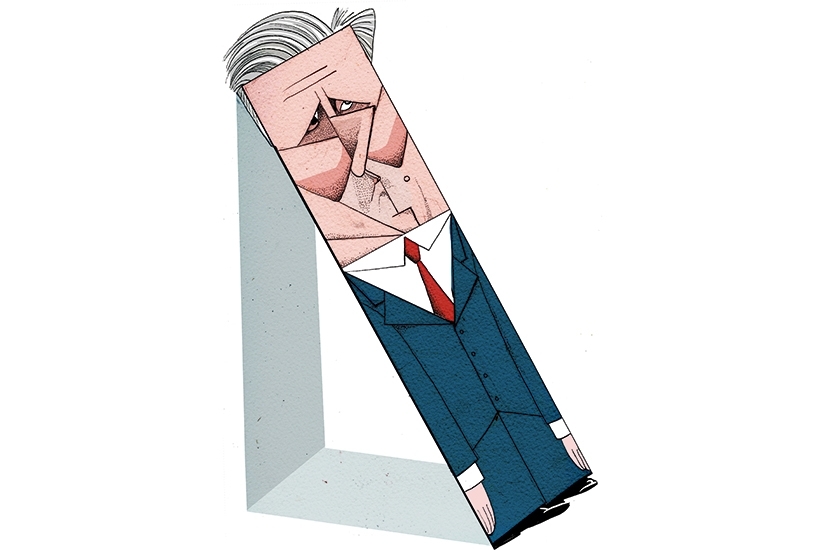In January 1990 things looked truly bleak for Alex Ferguson as Manchester United manager. He had not won a trophy in his first two seasons in charge and the third was going badly wrong.
With a long injury list and an eight-game streak without a win, fan discontent was reaching fever pitch and media speculation suggested Ferguson was soon for the chop when his team took the field in an FA Cup third round match against Nottingham Forest. Get knocked out of that and all hope of silverware would be gone for yet another year.
Fortunately for him, a young lad called Mark Robins popped up to score the crucial goal in a dour 1-0 victory. Ferguson’s United went on to win the FA Cup that season and the rest, as they say, is history.
Given the current trend for explaining politics ‘in football terms’, it will be tempting for Labour supporters to substitute Keir Starmer’s name for Ferguson’s and Kim Leadbeater’s for Mark Robins’s. In other words, to view the narrow victory dug out in Batley and Spen as a crucial turning point and prelude to glittering success. It really isn’t that.
Labour is wedded to far too many unpopular causes to win any glittering political prizes
Labour is wedded to far too many unpopular causes – from dismantling immigration controls to apologising for Britain’s heritage and history and plotting to take the UK back under the thumb of Brussels – to win any glittering political prizes. And Sir Keir Starmer is no Sir Alex Ferguson either.
But what this by-election result does achieve is to lift the threat of an imminent leadership challenge and give Starmer’s new backroom team some breathing space in which to plan and craft a new set of ideas that may shore-up Labour’s status as the second party in British politics.
Even dedicated Starmer detractors such as I must accord the Labour leader a measure of credit for the battling Batley win. After all, he will have sanctioned the inspired selection of Ms Leadbeater as candidate and he did put in a strong showing in PMQs the day before polling, highlighting Boris Johnson’s mishandling of the Matt Hancock affair and pushing the always corrosive idea of the Tories having one rule for their mates and another for everyone else.
So what might be the policy issues to reconnect Labour with many of its lost supporters that the experienced and high-calibre pollster Deborah Mattinson and other new arrivals in Starmer’s inner-circle may alight upon? Tory failure on law and order is certainly one of them, especially given Starmer’s former role as the nation’s prosecutor in chief.
As I noted recently, he has already dipped a toe in the water here by pledging £200m extra spending on combating anti-social behaviour, including by funding more CCTV cameras in high-crime neighbourhoods. Lots of Labour MPs are instinctively soft on crime, preferring to view criminals as victims of a capitalist society, but Starmer can win many on the left round by restating the point Tony Blair made a generation ago – that the main victims of crime are the poor and the powerless and therefore tough measures tackling crime should be seen as progressive.
An even more delicate area concerns the role of the family and specifically the marginalisation of many fathers in the upbringing of children, especially at the bottom end of the white-working class and in many black households. There is no doubt that the absence of positive male role models and authority figures is harming the life chances of boys growing up in difficult circumstances and plays a role in many falling into bad ways. A Labour leader prepared to advance a ‘lads need dads’ policy blitz would find that it chimed among older white voters and in ethnic minority and faith communities too. It would also cause difficulties for the avowedly socially liberal Boris Johnson, who might struggle to present himself as a dutiful father in quite the way Sir Keir could.
But to do that, for example via tax and benefit policies to favour long-term couples, would require breaking the stranglehold strident feminism has exerted over Labour thinking on welfare provision for at least 40 years. Is Starmer capable of it? One has one’s doubts.
The third obvious area for Labour to challenge the Tory approach is one that The Spectator has highlighted extensively in recent weeks: housing policy. The Conservatives are highly vulnerable to the charge of allowing a handful of big developers, several of whom are also major Tory donors, to rig the market in their interests and against those of home-seekers.
In this area, Starmer could throw red meat to the Labour left and disenchanted working-class voters alike by coming up with an eye-catching and radical pledge for huge numbers of new council houses. In effect, he could nationalise a large part of the house-building industry, giving councils new powers to acquire land and build upon it at will.
Ms Leadbeater’s by-election success has given Starmer the prospect of a relatively trouble-free run up to this autumn’s Labour conference and as such the chance to relaunch his leadership in his keynote speech. It won’t turn him into Alex Ferguson and he is never going to win the biggest trophies. But the odd success in a lesser cup could now be brought within his grasp.






Comments